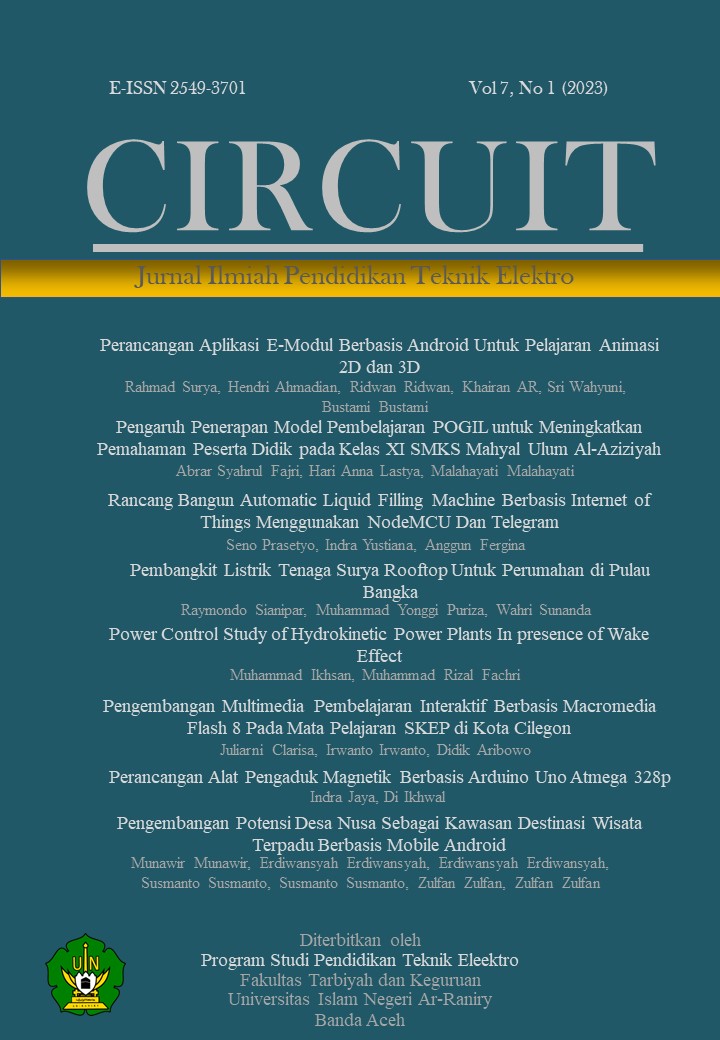Power Control Study of Hydrokinetic Power Plants in presence of Wake Effect
DOI:
https://doi.org/10.22373/crc.v7i1.14650Keywords:
Hidrokinetic, wake effect, simulation, BPA Model, PI ControllerAbstract
Hydrokinetic power plants are able to produce energy only by harnessing the kinetic energy of flowing water. Compared to dam-based hydroelectric power plants, hydrokinetic power plants have minimal impact on several issues e.g. environmental, health, social and political conflict. Similar to wind turbines in a wind farms, hydrokinetic turbines in tidal farms also generate a wake effect, which results in less kinetic energy on downstream turbines compared to upstream turbines. This article shows the simulation results of three hydrokinetic power generation systems installed in series on the same water stream such as river or aqueduct. The upstream turbine generates wake effect and resulting a velocity deficit both in the two downstream turbines. Bastankhah Porté-Agel model for wake effect was used in this study. The simulation results show that the downstream turbine cannot maintain the given voltage reference and loses the stability of the power control if the water velocity decreases. Several recommendations regarding series configuration of the hydrokinetic system are also presented in order to support the control stability.
Downloads
Published
Issue
Section
License
Authors who publish in CIRCUIT: Jurnal Ilmiah Pendidikan Teknik Elektro agree to the following terms:
- Authors retain copyright and grant the journal right of first publication with the work licensed under a Creative Commons Attribution-ShareAlike 4.0 International License (CC BY-SA 4.0) that allows others to share and adapt the work with an acknowledgement of the authorship and initial publication in this journal
- Authors are able to enter into separate, additional contractual arrangements for the non-exclusive distribution of the journal's published version of the work (e.g., post it to an institutional repository or publish it in a book), with an acknowledgment of its initial publication in this journal.
- Authors are permitted and encouraged to post their work online (e.g., in institutional repositories or on their website) prior to and during the submission process, as it can lead to productive exchanges, as well as earlier and greater citation of published work. (See The Effect of Open Acces)

